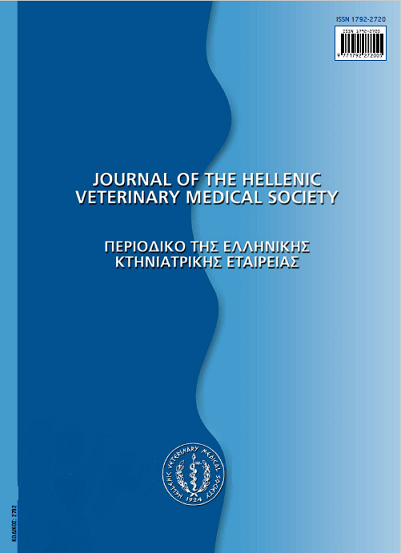Orthomanual therapy as treatment for suspected thoracolumbar disc disease in dogs ABSTRACT.

Abstract
According to the principles of veterinary orthomanual medicine, vertebral misalignments are associated with intervertebral disc disease in dogs. Manual correction of these vertebral misalignments are presumed to contribute to successful recovery. The objective of this retrospective study was to evaluate the effects of veterinary orthomanual therapy (VOT) in 261 dachshunds with suspected thoracolumbar intervertebral disc disease (TLDD). Effect of treatment was assessed using a retrograde
neurological status classification. From one clinic’s 2003-2008 medical records, 261 dachshunds with suspected TLDD met the inclusion criteria. Individual data included signalement and history, orthomanual aspects and neurological evaluations before treatment and at 2 weeks, 3 months and 6 months. Telephone interviews with owners were conducted one year after the initial treatment. The initial neurological status according to Griffiths ‘82 grading, was grade I in 115 animals (44%), grade II in 59 animals (23%), grade III in 27 animals (10%), grade IV in 52 animals (20%) and grade V in 8 animals (3%). Two weeks after the first treatment, 111 animals (55%) with initial grade I, II or III and two animals (3%) with initial grade IV or V had improved from their initial grade to a neurologically normal state; within 6 months of the initial treatment this full recovery was observed in 154 animals (77 %) with initial grade I, II or III and 27 animals (45%) with initial grade IV or V. Of the initially non-ambulatory dogs, 82% recovered to an ambulatory state. Of the owners, 89% evaluated the treatment as successful after 1 year. Most (78%) of the animals underwent a single VOT treatment, and the most commonly misaligned vertebrae were T12, T13 and L1. Veterinary orthomanual therapy is a conservative treatment method, which is minimally stressful for the animal and inexpensive. VOT combined with cage rest seems to be effective in treating TLDD in dachshunds. The results of this study demonstrate that veterinary orthomanual therapy might be considered an adjunct modality for the non-surgical treatment of dachshunds with intervertebral disc disease. A prospective controlled clinical trial is needed to further examine its efficacy.
Article Details
- How to Cite
-
AHARON, D. C., HEUKELS, J., & BUNTSMA, R. F. (2017). Orthomanual therapy as treatment for suspected thoracolumbar disc disease in dogs ABSTRACT. Journal of the Hellenic Veterinary Medical Society, 66(1), 31–40. https://doi.org/10.12681/jhvms.15581
- Issue
- Vol. 66 No. 1 (2015)
- Section
- Research Articles
Authors who publish with this journal agree to the following terms:
· Authors retain copyright and grant the journal right of first publication with the work simultaneously licensed under a Creative Commons Attribution Non-Commercial License that allows others to share the work with an acknowledgement of the work's authorship and initial publication in this journal.
· Authors are able to enter into separate, additional contractual arrangements for the non-exclusive distribution of the journal's published version of the work (e.g. post it to an institutional repository or publish it in a book), with an acknowledgement of its initial publication in this journal.
· Authors are permitted and encouraged to post their work online (preferably in institutional repositories or on their website) prior to and during the submission process, as it can lead to productive exchanges, as well as earlier and greater citation of published work.


